Filter by

Contesting Religion
As Scandinavian societies experience increased ethno-religious diversity, their Christian-Lutheran heritage and strong traditions of welfare and solidarity are being challenged and contested. This book explores conflicts related to religion as they play out in public broadcasting, social media, local civic settings, and schools. It examines how the mediatization of these controversies influence…
- Edition
- -
- ISBN/ISSN
- 9783110502060
- Collation
- -
- Series Title
- -
- Call Number
- -
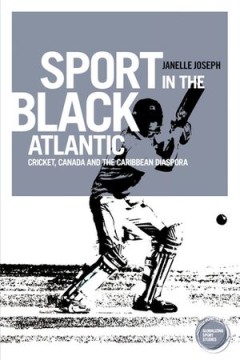
Sport in the Black Atlantic Cricket, Canada and the Caribbean diaspora
This book outlines the ways in which sport helps to create transnational social fields that interconnect migrants dispersed across a region known as the Black Atlantic: England, North America and the Caribbean. Many Caribbean men’s stories about their experiences migrating to Canada, settling in Toronto’s urban and suburban neighbourhoods, finding jobs, returning home for visits, and travel…
- Edition
- -
- ISBN/ISSN
- 9781526104939
- Collation
- -
- Series Title
- -
- Call Number
- -
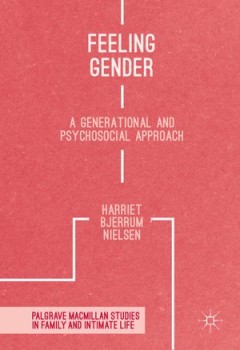
Feeling Gender: a Generational and Psychosocial Approach
Gender Studies; Sociology of Family, Youth and Aging; Family
- Edition
- -
- ISBN/ISSN
- 9781349950812
- Collation
- -
- Series Title
- -
- Call Number
- 360 NIE f

Organising care around patients Stories from the frontline of the NHS
Healthcare aims to be patient-centred but a large gap remains between the fine words and the reality. Care often feels designed for the convenience of the organisations that deliver it, and not enough around patients and their families, or even around the frontline staff who provide it. Why does this happen? What does it feel like? What can be done about it? This book stimulates reflection on t…
- Edition
- -
- ISBN/ISSN
- 9781526147448
- Collation
- -
- Series Title
- -
- Call Number
- -
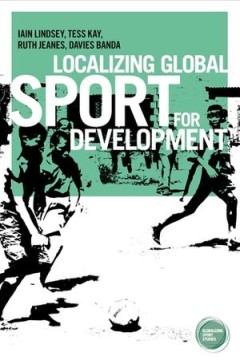
Localizing global sport for development
Drawing on nearly a decade of wide-ranging, multidisciplinary research undertaken with young people and adults living and working in urban communities in Zambia, this jointly-authored book extends existing understandings of the use of sport to contribute to global development agendas has burgeoned over the last two decades. The book’s locally-centred and contextualized analysis represents an …
- Edition
- -
- ISBN/ISSN
- 9781526104991
- Collation
- -
- Series Title
- -
- Call Number
- -
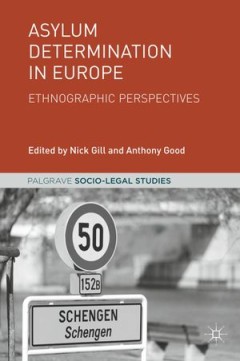
Asylum Determination in Europe
Drawing on new research material from ten European countries, Asylum Determination in Europe: Ethnographic Perspectives brings together a range of detailed accounts of the legal and bureaucratic processes by which asylum claims are decided.The book includes a legal overview of European asylum determination procedures, followed by sections on the diverse actors involved, the means by which they …
- Edition
- -
- ISBN/ISSN
- -
- Collation
- -
- Series Title
- -
- Call Number
- 360 ASY a

Vidding: A History
Vidding is a well-established remix practice where fans edit an existing film, music video, TV show, or other performance and set it to music of their choosing. Vids emerged forty years ago as a complicated technological feat involving capturing footage from TV with a VCR and syncing with music—and their makers and consumers were almost exclusively women, many of them queer women. The technol…
- Edition
- -
- ISBN/ISSN
- 9780472902590
- Collation
- -
- Series Title
- -
- Call Number
- 302.231 COP f

The Unreal Estate Guide to Detroit
Intense attention has been paid to Detroit as a site of urban crisis. This crisis, however, has not only yielded the massive devaluation of real estate that has so often been noted; it has also yielded an explosive production of seemingly valueless urban property that has facilitated the imagination and practice of alternative urbanisms. The first sustained study of Detroit’s alternative urba…
- Edition
- -
- ISBN/ISSN
- 9780472900282
- Collation
- -
- Series Title
- -
- Call Number
- 720 HER u
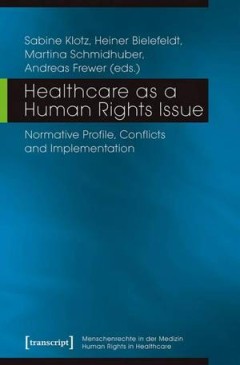
Healthcare as a Human Rights Issue : Normative Profile, Conflicts and Impleme…
This book deals with various facets of the human right to health: its normative profile as a universal right, current political and legal conflicts and contextualized implementation in different healthcare systems. The authors come from different countries and disciplines—law, political science, ethics, medicine etc.—and bring together a broad variety of academic and practical perspectives.…
- Edition
- -
- ISBN/ISSN
- 978-3-8394-4054-4
- Collation
- -
- Series Title
- -
- Call Number
- 362.1 HEA
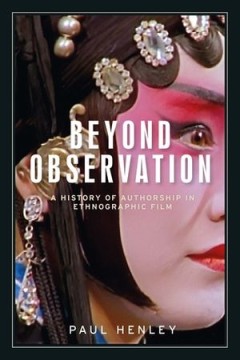
Beyond observation A history of authorship in ethnographic film
Beyond Observation is structured by the argument that the 'ethnographicness' of a film should not be determined by the fact that it is about an exotic culture - the popular view - nor because it has apparently not been authored - a long-standing academic view - but rather because it adheres to the norms of ethnographic practice more generally. On these grounds, the book covers a large number of…
- Edition
- -
- ISBN/ISSN
- 9781526147295
- Collation
- -
- Series Title
- -
- Call Number
- -
 Computer Science, Information & General Works
Computer Science, Information & General Works  Philosophy & Psychology
Philosophy & Psychology  Religion
Religion  Social Sciences
Social Sciences  Language
Language  Pure Science
Pure Science  Applied Sciences
Applied Sciences  Art & Recreation
Art & Recreation  Literature
Literature  History & Geography
History & Geography